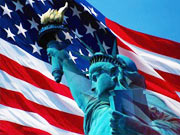| The U.S. Consumer Product Safety Commission announced Tuesday an agreement with Chinese officials aimed at stopping the use of lead paint on Chinese-made toys that are exported to the United States. At a "Consumer Product Safety Summit" underway in Washington, the CPSC said China's General Administration of Quality Supervision, Inspection and Quarantine (AQSIQ) had agreed "to take immediate action to eliminate the use of lead paint on Chinese manufactured toys exported to the United States." Although the United States has banned the sale of toys made with lead paint since 1978, those products continue to seep into the domestic market. The CPSC also said China will increase inspections of consumer products destined for the U.S. and assist the agency in tracing hazardous products to the manufacturer, distributor and exporter in China. "If there is a product recall by a U.S. company that sourced the goods from a Chinese supplier, under the new agreement, China will now let the CPSC know if that supplier also sells its products to other U.S. importers," said Eric Autor, international trade counsel for the National Retail Federation, who attended the summit. Chinese officials also said China would now require U.S. importers to obtain "export registration" for products that cause concern. China will also ask importers to provide product designs to Chinese suppliers that are in compliance with U.S. safety standards and that U.S. importers provide reasonable prices to manufacturers to prevent Chinese producers from cutting corners and using cheaper unsafe materials. Consumers Union, publisher of Consumer Reports magazine, said the agreement between the U.S. and China to eliminate the use of lead paint was "long overdue." "China faces huge challenges in enforcing adherence to U.S. safety standards in products it exports to this country," Donald Mays, senior director of product safety with Consumers Union, said in a statement. "However, we are encouraged by the fact that U.S. toy manufacturers and retailers have indicated that they want federally mandated third-party testing of children's products." China moved ahead of Canada as the leading source of imports into the United States, according to the most recent reading from the Commerce Department. China also accounts for more than 80 percent of the world's toy production, primarily due to its low labor and raw material costs. This year, Mattel (Charts, Fortune 500), the world's largest toymaker, faced three toy recalls that affected millions of its toys made in China. Mattel said those toys posed lead poisoning and choking risks to small children. Another toymaker, RC2 Corp., recalled 1.5 million "Thomas & Friends" wooden railway toys in June that were also made in China over concerns that the surface paints on the toys contained lead. "This is an important signal from the Chinese government that it is serious about working with CPSC to keep dangerous products out of American homes," CPSC's acting chairman, Nancy Nord, said in a statement. "We will be looking for meaningful cooperation on the ground, that means not just with the Chinese government but also with industry at both ends of the supply chain." For its part, the CPSC has also come under fire from critics who said the agency is not doing enough to ensure that unsafe products do not reach store shelves. Analysts point out that the CPSC currently doesn't have pre-market jurisdiction, which means that the agency can't test products for safety issues before they hit the market. In the wake of the recent recalls affecting toys, toothpaste, tainted pet food and other products imported from China, some U.S. lawmakers are taking a closer look at U.S. manufacturers' and the CPSC's role in ensuring product safety. To that end, on Wednesday, Mattel's CEO Robert Eckert is expected to testify before a Senate Appropriations subcommittee that oversees the Consumer Product Safety Commission about the problem of recalls of products made in China. Separately, on Tuesday, Sen. Amy Klobuchar, D-Minn., introduced a bill to ban the use of lead in the manufacturing of children's toys, jewelry and other products. Current voluntary guidelines set forth by the CPSC recommend additional testing of potentially unsafe products rather than an immediate recall of products found to contain lead. "After a summer of recalls, it's time we make it crystal clear that lead has no place in our children's products. We must keep these unsafe toys off our shores and out of our stores," Klobuchar said in a statement. The bill provides that lead in any children's product shall be treated as a "banned hazardous substance." It would set a ceiling for a trace level of lead at 0.04 percent per part for children's products, and 0.02 percent for jewelry. If enacted, this legislation would be the first time standards for lead levels in children's products would be set by federal law. While current law does not ban lead in toys, the Consumer Product Safety Commission has voluntary guidelines set at 0.06 percent. Later in the day, the CPSC and Chinese officials held a panel discussion to assess what responsibility, if any, retailers have to ensure that the products they sell comply with U.S. safety standards. "The CPSC acknowledges that product recalls pose a certain challenge to retailers," said NRF's Autor, adding that the agency said that under Federal statutes, manufacturers, including importers, are responsible for product safety. "By the time products reach retailers, their best safety enforcement is to do random samplings. That is less than a perfect solution to the problem," Autor said. Given that retailers generally are unaware of who the Chinese suppliers are to U.S. manufacturers, Autor said he too believes the burden falls on U.S. importers to best maintain product quality and safety controls. |





